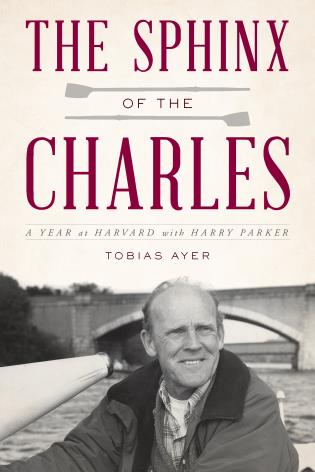Alum Books Podcast: The Sphinx of the Charles
-
-
slice.mit.edu
Filed Under
Recommended
 Tobias Ayer ’96 has a lot of pride in his alma mater, but it’s the school up the river, and its legendary crew coach Harry Parker, that he chose to profile in his new book this past fall.
Tobias Ayer ’96 has a lot of pride in his alma mater, but it’s the school up the river, and its legendary crew coach Harry Parker, that he chose to profile in his new book this past fall.The Sphinx of the Charles: A Year at Harvard with Harry Parker chronicles Ayer’s years spent as an assistant on Parker’s coaching staff and as a shadow to Parker doing research for the book in one of his last seasons. Ayer discusses the book in this podcast episode.
Parker’s legacy is well known – over a dozen national titles, a 43-7 record over archrival Yale in his half-century of coaching, and three Olympic medals during his stints as a national coach.
(Read the episode transcript.)
For Ayer, though, the book is an attempt to document the previously undocumented – giving readers an intimate view of Parker’s coaching style and personal charm that they wouldn’t pick up from watching a crew race along the shore.
Asked what made Parker such a good fit for the Charles River, Ayer says, “He just decided to be as good as he could be at it. If he was going to learn that river, he was going to learn that river. He was an engineer at heart and would look for the way to get things done.”
As an MIT rower, Ayer looked at his Crimson rivals, under Parker’s leadership, as a breed of rower unto themselves. “They were the reference point. You couldn’t really say that we raced them. We were never really in contention. We would see them practicing and it always seemed like there were these big guys rowing slowly past, quietly. This image of power and smoothness,” he says.
Above all, Ayer admires Parker’s longevity and persistence. “He kept coaching even though his body was failing,” he says. “There were these stories of him crawling out of his coaching launch. Then after the [2013] Yale race, he was in the hospital in Boston, and apparently checked himself out of the hospital to go coach on the river for this reunion of a 1980 Olympic group. He was out on the river with them, and he was switching people out in between crews. Then I think he died two or three days later after that row.”
Listen to the full interview above then visit the Alumni Association’s Slice of MIT Podcast page on SoundCloud for the full episode archive.






